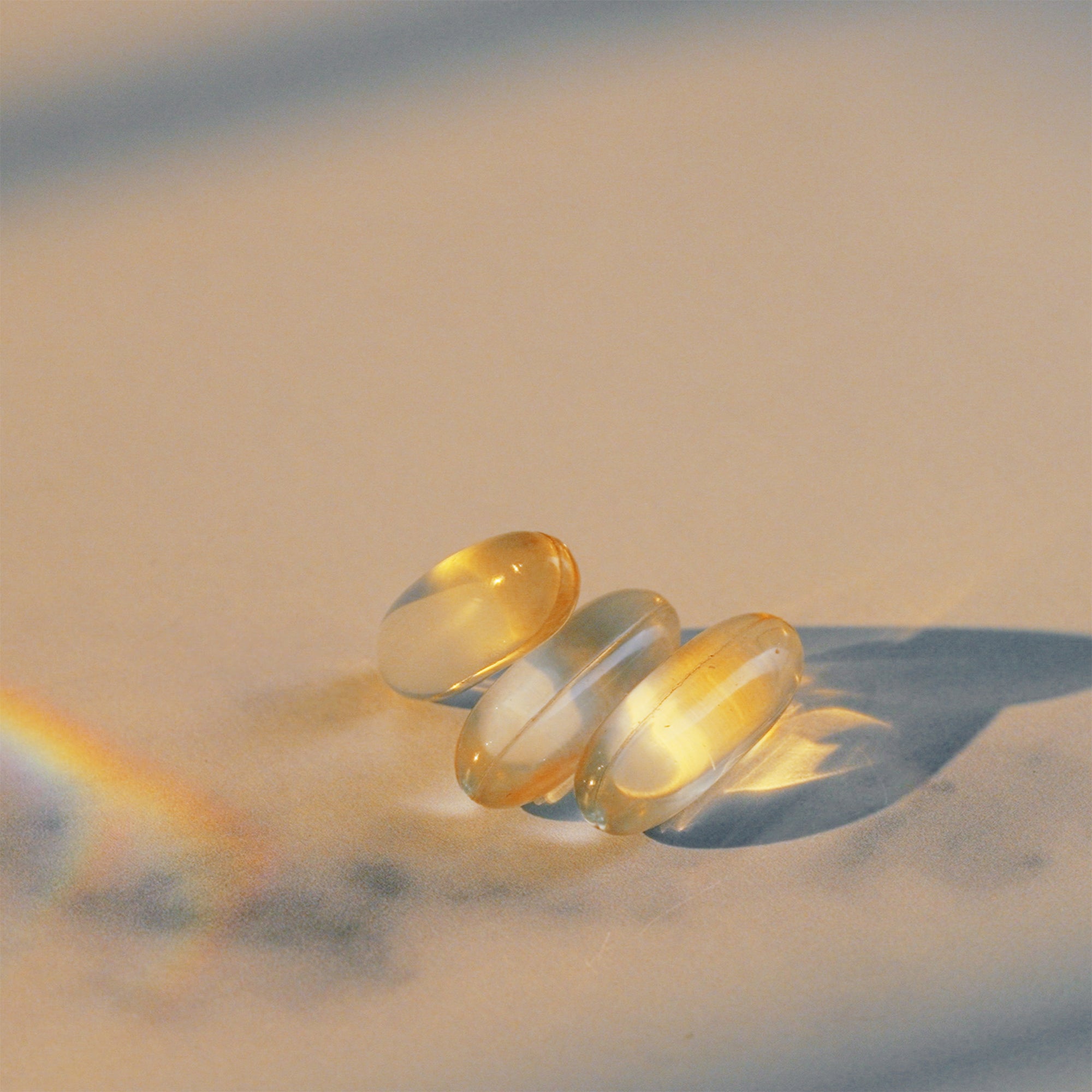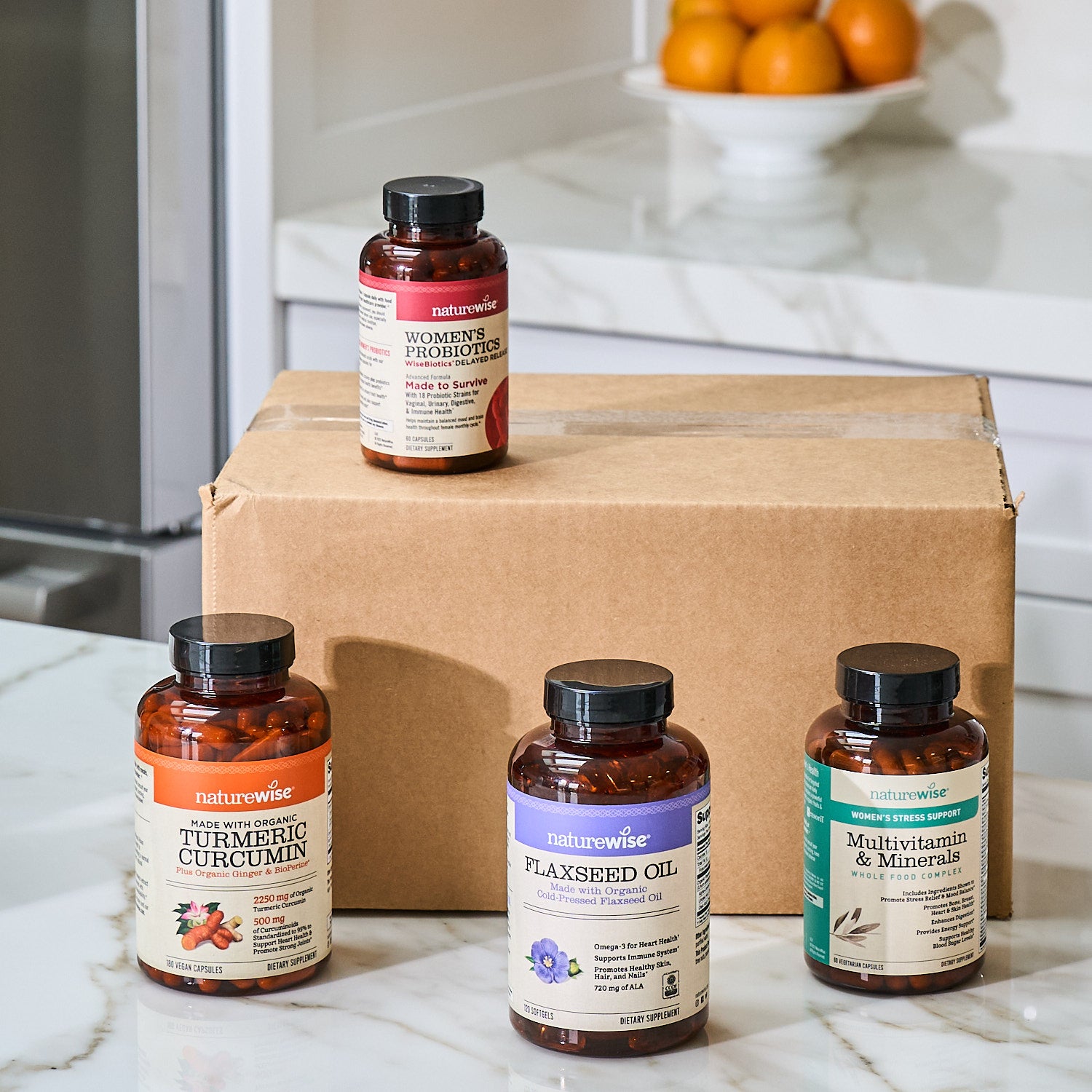Like water and oxygen, vitamins play critical roles in maintaining normal body function. And of the thirteen essential vitamins we need to stay healthy, vitamin D is especially important in the fall and winter seasons.
Unlike other vitamins we mainly get through the foods we consume, vitamin D is mainly produced via sun exposure (that’s why you may also know it as the “sunshine vitamin”). But simply being outdoors doesn’t ensure that we have sufficient vitamin D levels, and we shouldn’t assume that our bodies can automatically produce all the vitamin D we need. In fact, an estimated one billion people across the globe have insufficient vitamin D levels.
So prepare for the colder months by understanding as much as possible about vitamin D — the fundamental nutrient that helps us absorb calcium and promotes our immune system:
Why might vitamin D levels drop in fall and winter?
Sun exposure is a key component in natural vitamin D production. Depending on the melanin levels in our skin, we should aim to get at least 10-30 minutes of sunlight multiple times a week. (If you have darker skin, you may need more sun exposure to produce proper vitamin D levels.)
Naturally, our access to sunlight diminishes during fall and winter. Shorter days, altered lifestyles to spend more time indoors, and hostile weather are all culprits behind decreased sun exposure — and as a result, decreased vitamin D levels.
However, a drop in vitamin D levels is the last thing you want during this season! Lower temperatures and increased pathogen exposure during the back-to-school season can lead to precarious health conditions. Let’s dive into why ensuring proper levels of vitamin D is more important than ever during this time:
How are vitamin D and the immune system connected?

1. Proper vitamin D levels ensure bone health.
Vitamin D has a function that no other vitamin can fulfill. It’s the only vitamin that helps our body absorb calcium. Calcium is a mineral that helps to keep our bones strong yet flexible, preventing brittleness that may cause easy bone damage and breaks. Even with healthy amounts of calcium, our bodies can’t utilize its properties without sufficient vitamin D levels.
That’s why vitamin D deficiency can lead to poor bone health and conditions like osteomalacia, a disease in which lack of vitamin D causes weak bones. In more severe cases, it could lead to osteoporosis, which causes bones to become so brittle that they can easily fracture from merely bending over or suffering a light fall.
2. Vitamin D deficiency can increase the risk of inflammatory disease.
Studies have found that vitamin D deficiency is associated with higher levels of inflammatory biomarkers. In other words, insufficient vitamin D levels may increase the risk of chronic inflammation.
When our bodies experience chronic inflammation, we increase our risk for a compromised immune response. Chronic inflammation causes our bodies to be on high alert constantly, and our immune systems may start to attack healthy tissue. This increases the risk of severe health conditions like certain cancers, heart attacks, and more.
3. Vitamin D plays a vital role in supporting the immune system.
Thousands of people fall ill due to the flu and the common cold every fall and winter season. However, one of the best ways to prepare for this season is to ensure proper vitamin D levels, which is crucial for keeping a strong immune system.
This is because vitamin D is vital for the activation of our immune systems. Without healthy levels of this nutrient, our bodies can’t fight off infections. Additionally, vitamin D promotes our immune system by supporting a healthy respiratory system, keeping you away from the common cold, bronchitis, flu, and more.
Vitamin D also supports strong lungs, which are essential during the season in which respiratory infections are common.
How can I support proper Vitamin D levels?

Vitamin D levels are more likely to drop in the winter due to decreased sun exposure. Luckily, there are other ways to boost your intake of this unique vitamin. Increase your vitamin D with the following foods:
- Fortified milk. Ever been told to drink milk to help your bones grow stronger? This isn’t a baseless suggestion. Fortified milk has added vitamins (A and D3) to support vitamin D intake in your body.
- Salmon and tuna. Sushi lovers, this one’s for you. These fatty fish can be tasty and prime sources of vitamin D while containing other vital nutrients like omega-3s and protein.
- Eggs. Eggs are one of the most versatile and easiest ways to include regular vitamin D consumption into your meals. However, be sure not to omit any part of the egg when preparing your dish since vitamin D is found in the yolk.
- Mushrooms. Certain mushrooms (like oyster mushrooms) can be chock full of vitamin D and act as popular meat alternatives for those with plant-based diets.
- Vitamin D supplements. Supplements are a direct way to include mindful vitamin consumption in your daily lifestyle. NatureWise Vitamin D3 supplements are formulated with a bioactive form of vitamin D and olive oil for high absorption by your body.
Understanding What Your Body Needs
Maintaining a healthy immune system is a year-long effort, and you may need to vary your focus on nutrient supplementation as seasons change. This is especially true of vitamin D, so don't forget to remain mindful of changes to sun exposure regularly. However, remember that you should always wear sunscreen before you head outside if you choose to stay in the sun. Sunscreen is unlikely to prevent the production of vitamin D, but can dramatically reduce the risk of skin cancer.
So as you prepare for the fall and winter seasons, stay healthy by adjusting to what your body needs and getting enough vitamin D!
















